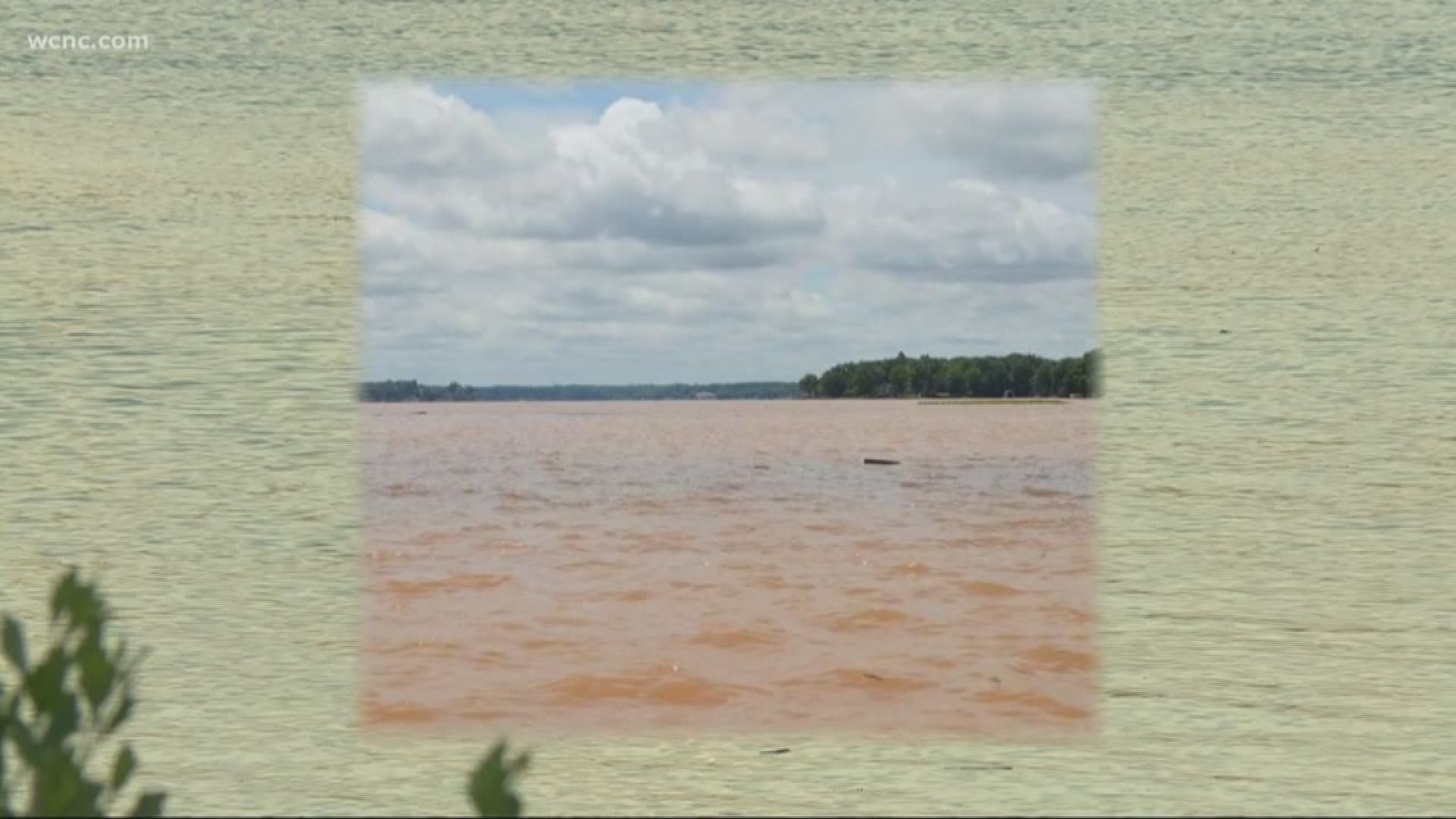The water in Mountain Island Lake is about as brown as the sewage that spilled into it.
But those who keep a close eye on the water argue it's still safe to drink.
It's a lake that usually hosts boats and water enthusiasts. However, city and county officials are warning everyone to stay out of Mountain Island Lake right now.
The warning comes after more than 100,000 gallons of raw sewage spilled into the lake during the historic floods along the Catawba River system.
"There's going to be more sewage, more bacteria, more hydrocarbons in the water," said Rusty Rozzelle, with Charlotte-Mecklenburg Storm Water Services.
Not only can floating debris, loose boats, and parts of docks be seen floating along the lake and river, but other pollutants are also streaming along. Those include gasoline, diesel, and other contaminants.
It's why Rozzelle and Catawba Riverkeeper Brandon Jones are urging everyone to stay out of the water.
"Mountain Island Lake suffered the most flooding and pollution," Jones explained. "We recommend staying out of Mountain Island Lake, Lake Wylie, and the South Fork of the Catawba until testing results confirm it is safe to swim or the clarity improves to normal levels."
"There's E. Coli bacteria that is there, and there are other bacteria. It could cause diseases," added Rozzelle.
They are especially concerned with those getting in the water with opened wounds. They said infections are what to expect if you get in.
"If you do go swimming, you shouldn't have any open wounds. They could get infected. And certainly, bathe afterward," Rozzelle added.
For kayakers like Justin Gibson, it was a gross feeling when he stepped out of the water and was notified about the warning.
"It's just nasty being in it knowing that you're getting splashed with water all the time," he said.
Mountain Island Lake impacts us all. The water flowing out of your sinks and showers likely comes from the lake. Although crews continue pumping drinking water out of the dirty lake, Rozzelle said it's still safe to consume.
"That water is very well treated once it's removed from the lake, and those pollutants are removed before making it to anybody's tap," he explained.
Rozzelle and others from his team will be out testing the lake on Friday. They hope to learn more details of what exactly is in the water and just how bad the situation is.
As far as cleanup is concerned, Rozzelle said they would let it run its course. He said there is no way for them to clean up the pollution, except for the debris.
The contaminants will make their way downstream on their own, and cleaner water should make its way in by next week, according to Rozzelle.

